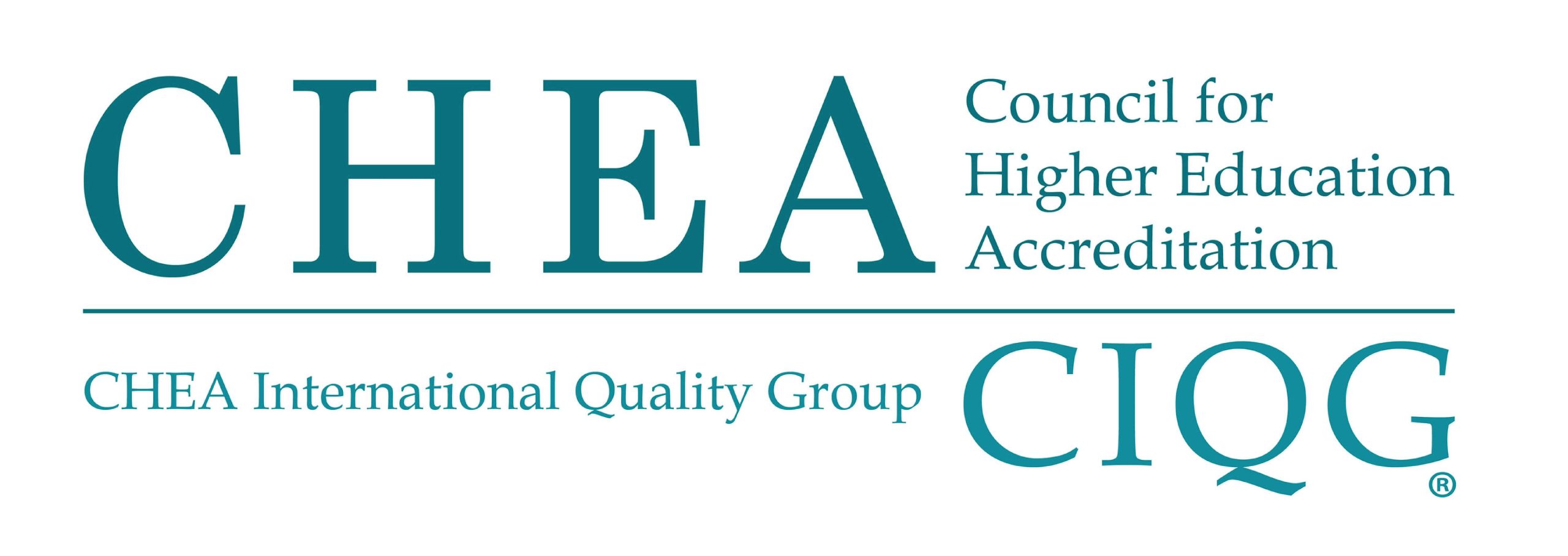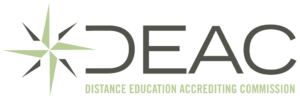We Are
Acacia University
Our Accreditation Assures You a Quality Academic Program

Acacia University is recognized by the Distance Education Accrediting Commission (DEAC) as an accredited online University, and adheres to all DEAC Standards and Code of Ethics.
- The DEAC is listed by the U.S. Department of education as a recognized accrediting agency.
- It is a private, non-profit organisation founded in 1926 that operates as an institutional accreditor of distance education institutions.
- Accreditation by DEAC covers all distance education activities within an institution and it provides accreditation from the secondary school level through professional doctoral degree-granting institutions.
- DEAC’s geographic area of accreditation activities includes all states within the United States and international locations.
-
1. The institution publishes a statement of accreditation only as follows:
• Accredited by the Distance Education Accrediting Commission
• DEAC Accredited - 2. “The Distance Education Accrediting Commission is listed by the U.S. Department of Education as a recognized accrediting Agency.”
- 3. “The Distance Education Accrediting Commission is recognized by the Council for Higher Education Accreditation (CHEA).”
- 4. The accredited institution publicly corrects any misleading or inaccurate information it releases on its accreditation status, contents of its on-site team reports from accreditation-related visits, and/or actions taken by the Distance Education Accrediting Commission with respect to the institution.
- 5. All courses and programs of the institution are approved by DEAC before the institution advertises them or enrolls students in them. The institution uses the term “College” or “University” in its name only if it offers academic degree programs.
CAEL Membership
Acacia University is a proud member of the Council for Adult and Experiential Learning (CAEL), which was founded in 1974 to help organizations succeed by providing expertise, resources, and solutions that effectively support adult learners as they navigate on-an off-ramp between education and employment.
To complement its pioneering work to support adult learners and learning recognition, in the 1990s, CAEL expanded its mission to include workforce development and the mutually beneficial links between curricula and careers that are so vital to the success of learners and communities they live and work in.
Through collaboration with educators, employers, and community leaders, CAEL’s nonprofit mission has become a national movement to ensure that every adult can navigate lifelong learning and career pathways that fuel social mobility and equitable prosperity.
Today, CAEL supports adult learner success at more than 300 postsecondary institutions, employers, and government agencies in the U.S. and abroad.

Acacia University is officially registered with World Education Services (WES) and has been assigned a designated ID number (4671). This number is a unique identifier that allows WES to easily verify and evaluate the credentials of students who have attended or graduated from Acacia University. Founded in 1974, WES, based in New York, is a renowned nonprofit organization that provides credential evaluations to students. Its mission is to help international students and professionals achieve their academic and professional goals by providing accurate and reliable credential evaluations. WES evaluates academic transcripts, degrees, and other qualifications from institutions around the world to ensure that they meet the standards of U.S. educational institutions and employers.

The Distance Education Accrediting Commission is recognized by the Council for Higher Education Accreditation (CHEA).
- CHEA is the only national organisation focused exclusively on higher education accreditation and quality assurance.
- Recognition by CHEA affirms that standards and processes of accrediting organisations are consistent with quality, improvement, and accountability expectations that CHEA has established.
CONIES Membership

Acacia University has been granted membership in the Council on International Higher Education Supervision (CONIES). CONIES-ICHE Board of Accreditation is recognised by the founding member universities of CONIES Confederación Internacional de Educación Superior, accredited by the BQS Board of Quality Standards (INQAAHE member) as Management System Certification Body (ISO 17021). CONIES is a member of INQAAHE and APQN. The Board is acting in full independence from the founding member universities, and the autonomy is reflected in the development of its assessment functions. CONIES has emerged as the COUNCIL ON INTERNATIONAL HIGHER EDUCATION SUPERVISION, offering two types of quality assurance certifications and accreditations to member universities: Quality Management System certification and Programme Accreditation.
WES Membership

Acacia University is officially registered with World Education Services (WES) and has been assigned a designated ID number (4671). This number is a unique identifier that allows WES to easily verify and evaluate the credentials of students who have attended or graduated from Acacia University. Founded in 1974, WES, based in New York, is a renowned nonprofit organization that provides credential evaluations to students. Its mission is to help international students and professionals achieve their academic and professional goals by providing accurate and reliable credential evaluations. WES evaluates academic transcripts, degrees, and other qualifications from institutions around the world to ensure that they meet the standards of U.S. educational institutions and employers.

Acacia University holds accreditation through the Distance Education Accrediting Commission (DEAC). The Distance Education Accrediting Commission is listed by the U.S. Department of Education as a recognized accrediting agency. Founded in 1926, it has become the agency that sets the standard for all distance education institutions.
Distance Education Accrediting
Commission (DEAC)
1101 17th Street NW, Suite 808
Washington, DC 20036
Phone: (202) 234-5100
http://www.deac.org
What Is Accreditation?
Why Is Accreditation Important?
Accreditation assures you, the student, that the institution operates on a sound financial basis, has approved programs of study, qualified instructors, adequate facilities, and approved policies. Additionally, accreditation is often required by employer sponsored tuition reimbursement programs and by other institutions when evaluating transfer credits.
Here are three quick steps to quickly “search” for accredited schools on the US Department of Education web site. Follow the steps below and enter out name and accreditation information will be displayed.
On the U S Department of Education web site they state that the Secretary of Education recognizes only one agency dedicated solely to accrediting distance education institutions, the Distance Education Accrediting Commission (DEAC).

* Disclosure notice to US students:
Acacia University offers graduate degrees for current teachers to achieve their professional goals. Prospective and current students in the US must be licensed teachers in the state in which they work. Therefore, Acacia programs are NOT a pathway to teacher licensure in the US.
This information is provided per U.S. Federal Regulations, 34 CFR § 668.50 (2016 Rules), 34 CFR § 668.43 (2019 Rules), and in compliance with the State Authorization Reciprocity Agreement (SARA) Manual version 19.2.
Acacia University is an approved institution of the National Council for State Authorization Reciprocity Agreements (NC-SARA) which allows the university to provide distance learning programs and coursework to students located in states other than Arizona. NC-SARA approval does not grant reciprocity or exemption from state professional licensing requirements.






